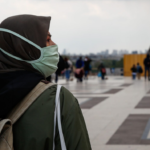
When nations view the world through ideological blinkers, they often risk alienating key global partners. Turkiye has done just that.
Its insensitive posture following the Pahalgam terror attack, which claimed innocent Indian lives, revealed a serious diplomatic misjudgment — not just of the situation, but of India’s strategic resolve. By echoing Pakistan’s narrative even in the wake of such brutality, Ankara has shown that its foreign policy remains driven more by neo-Ottoman Islamic identity politics than by realpolitik.

Ankara’s Provocation After a Tragedy
For India — a country that has long borne the brunt of cross-border terrorism from Pakistan — Turkiye’s response was not just tone-deaf. It was unacceptable.
When India carried out Operation Sindoor, a limited and non-escalatory counter-terrorism strike, Ankara irresponsibly labelled it as “provocative.” Such remarks, far from being neutral, were diplomatically reckless. Worse, they seemed to endorse Pakistan’s habitual deflection and denial, even in the face of clear evidence and bloodshed.
Is Turkiye Arming Pakistan?
What has truly set alarm bells ringing in Indian strategic circles are multiple open-source intelligence (OSINT) reports indicating Turkiye’s alleged transfer of military equipment to Pakistan. These include:
- Possible movement of up to six C-130E Hercules aircraft to Karachi
- Potential delivery of Bayraktar TB2 drones, Songar UAVs, T-155 Firtina howitzers, and MAM-L smart munitions
- A high-level Turkish military delegation visit to Pakistan on April 30, led by Lt. Gen. Yasir Kodioglu
Though Ankara has attempted to pass off these activities as “logistical coincidences” or “pre-scheduled visits,” symbolism matters in diplomacy. The failure to delay or diplomatically temper such actions during heightened Indo-Pak tensions reveals a thoughtless alignment with Pakistan, one that Turkiye can ill afford.
Also Read If India Cuts Turkey Connections, These Prices Could Soar — Find Out What!
From Rebuilding Ties to Breaking Them
This comes as a shock given that India and Turkiye had recently been repairing their historically lukewarm ties. Bilateral trade had reached $11.2 billion in 2023–24, with ambitions to raise it to $15 billion by 2025. Indian exports included:
- $3.1 billion in petroleum products
- $1.4 billion in automobiles
- $710 million in pharmaceuticals
Meanwhile, Indian companies were actively engaged in construction, infrastructure, and energy projects across Turkiye. Over 310 Indian businesses were partnered with Turkish firms, and $340 million worth of investment and procurement deals were either underway or expanding.
But if India begins scaling back this economic engagement, the impact on Turkiye’s fragile economy will be serious.
Turkiye’s Economy Can’t Afford to Lose India
Turkiye is facing 65% inflation, 10.6% unemployment, and a 40% currency depreciation (2024 figures). India contributes about 3.6% to Turkiye’s global imports and exports. Moreover:
-
Over 3.3 lakh Indian tourists visited Turkiye in 2024, contributing $250 million
-
Travel agency data suggests a 28% drop in Indian bookings, with tourists opting for Greece, Egypt, and the UAE instead
A decline of even 30–35% in Indian trade and tourism could cost Turkiye $2.5 billion annually.
Worse still, Indian tech and infrastructure firms are now reviewing or halting projects in Ankara and Izmir. Their exit may delay timelines and increase borrowing costs by 8–10%, a blow to Turkiye’s public-private projects.
Ambassador Pardeshi’s Outreach — and Ankara’s Rejection
India even appointed veteran diplomat Muktesh Pardeshi to engage Turkiye diplomatically — a gesture of goodwill and strategic patience. But Ankara’s response was lukewarm at best. Rather than building bridges, it chose to dig trenches.
Also Read India-Turkey Relations: Costs and Consequences of Rising Tensions
Public Anger in India is Not Fleeting
What will hurt Turkiye the most this time is the anger of the Indian public. India’s collective memory doesn’t forget easily. Especially not when Turkiye sided with Pakistan — just a year after India stood with Ankara during its devastating February 2023 earthquake via Operation Dost.
Even academic ties are breaking down. Universities like JNU, Jamia, IIT Roorkee, and Maulana Azad Urdu University have either suspended or refused MoUs with Turkish counterparts. Istanbul University’s ties with Indian institutions have been formally terminated.
Security Concerns Over Diyanet’s Influence
Beyond diplomacy and trade, one of the most concerning threats lies in the operations of Turkiye’s Directorate of Religious Affairs — Diyanet.
- Over 300 Diyanet-sponsored scholarships were recorded in 2024
- Many target students from South India and Jammu & Kashmir
- Several Islamic centres funded by Diyanet are operational in cities like Hyderabad, Kozhikode, Lucknow, and Srinagar
These centres have been allegedly promoting narratives that glorify the Caliphate, subtly undermining India’s secular fabric. Many Indian security analysts see this as “soft indoctrination” cloaked in cultural diplomacy.
India’s government is now refusing to renew MoUs with Turkish academic and religious institutions — not just to isolate Turkiye, but to neutralise potential long-term ideological infiltration.
Conclusion: Actions Have Consequences
Turkiye’s decision to back Pakistan post-Pahalgam, downplay Indian counterterrorism efforts, and indulge in symbolic and possibly material support to Islamabad, marks a clear betrayal — diplomatically, emotionally, and strategically.
It’s no longer just a question of geopolitics. It’s about values, trust, and memory.
Ankara may soon learn what happens when it chooses ideology over diplomacy, and provocation over partnership. And this time, India may not come back to the table so easily.












